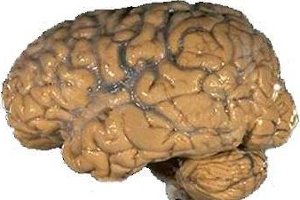 Dowd explores the idea of sin as going backwards on the evolutionary track and that when we are sinning we let the primitive, instinctual, aggressive, fear-driven part of our brain take charge.
Dowd explores the idea of sin as going backwards on the evolutionary track and that when we are sinning we let the primitive, instinctual, aggressive, fear-driven part of our brain take charge.
Call it the Devil, or evil, or sin, or whatever, something is not quite right in the world. Read a newspaper or turn on the news. Study history. Study your own history. Live life and you’ll find that out. Mystics from all traditions will say that the problem is the way we perceive the world.
Augustine, a Fourth Century Bishop and a Catholic Saint, is credited with conceiving the notion of “original sin”. He found something not quite right in the human mind and human will. But because we have reason, with the help of God, we can chose to do good rather than evil. Julian of Norwich, a Fourteenth Century Christian mystic who lived in Norwich, England, wrote a document describing a series of visions that she had, called Showings or Revelations of Divine Love. Actually, she wrote it about 20 years after she had the visions. She lived in a small room attached to a church. People would come to her to share their problems and pain. She lived through the plague in her town. She would have seen dead bodies in the streets outside her room. But she wrote that sin is “behovely”, or necessary, and that “All shall be well.”
Thomas Merton, a Trappist monk who lived in a Kentucky monastery and died in 1968, thought that life was about recovering our true nature that has been lost. I like this idea of Merton because life, it seems to me, is something like a journey home. As we grow, we can become more comfortable with who we are and less concerned about what others think of us. Paul Tillich, a Protestant theologian and contemporary of Merton thought of sin as separation. We are born separated from our real selves, other people, and God. Modern theologians might add that we also think of ourselves as separated from the Earth and that this sense of separation has led to environmental degradation, species extinction, and perhaps eventually it will lead to our own extinction. Some have called the Devil the Father of Lies. In this case the lie is that we are separated from our best selves, one another, and the Earth.
But what do scientists think about sin? I’ve recently read a book that provided an interesting connection between the biological idea of evolution and sin. The book, by Michael Dowd, an Evangelical Christian, is called Thank God for Evolution. In the book, Dowd explores the idea of sin as going backwards on the evolutionary track and that when we are sinning we let the primitive, instinctual, aggressive, fear-driven part of our brain take charge. We stop thinking and words become weapons; our heart rate goes up and the body releases lots of stress hormones into our bloodstream. Like when we are mad at the person who just cut us off in traffic. We’re not our best selves in these moments, or living as full human beings. And we tend to be selfish and inconsiderate when we’re trying to tailgate the person who cut us off; and we don’t notice the child in the back seat of the other car. Later we might say, “I wasn’t myself”.
